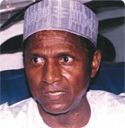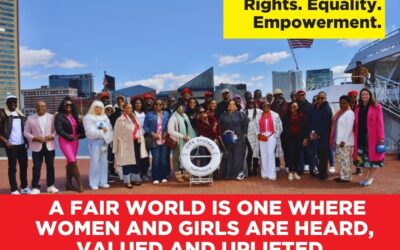Prof. Itse Sagay is a constitutional lawyer of repute. In this on-line interview on the nation's 47th independence anniversary he expresses optimism that though moving slowly, Nigeria is now on the verge of taking the right path to self-discovery, a development he posits would eventually bring into being, a more enlightened, civilised and considerate federation.
Nigeria turns 47 tomorrow. Should we be rolling out the drums and cymbals in celebration… I do not believe that we have a justification as a country to roll out the drums of celebration on Monday, 1st October, 2007. Nevertheless in the light of our sad and disturbing experiences under the despotic, dictatorial, oppressive, bullying, and lawless administration of General Obasanjo, we would be justified in entertaining a modest degree of optimism on that day.
You will agree with me that the country has since independence gone through different curves of constitutional developments, are we anywhere close?
I note with delight that the bedrock of the Yar'Adua administration is respect for the rule of law. This has been amply demonstrated by the Federal Government, in its obedience to the Supreme Court judgment in the Anambra governorship case and in the return of the illegally seized Lagos State Local Government funds. I am also very encouraged by the Attorney-General's clear and forthright declaration to the effect that no agency will be allowed to break any law whilst purporting to enforce a particular law from his own narrow point of view.
The directive that no body must be kept in detention without a court order for more than 48 hours and the Attorney-General's intervention in the Orji Kalu case to compel respect for the order of the Abia State High Court are examples of this new spirit. We can therefore cautiously state that we are approaching the age of enlightenment in this country.
No doubts, the country has had its share of constitutional crisis common to developing countries of the world, is there hope of light at the end of the tunnel and how?
We have had many constitutions in this country since independence, namely, the 1960, 1963, 1979, 1989, 1995 and now the 1999 Constitution. Constitutional provisions are no doubt important for the successful organization and running of a country. For example, we need certain Constitutional changes namely, the introduction of true Federalism, restructuring of the polity, decentralization involving the transfer of power and resources from the Federal Government to the States.
But even if all these are achieved, that will not bring an end to the problems of this country. The fact that after six Constitutions since independence, Nigeria was at the point of becoming a failed state, unstable, violence prone, insecure, corrupt and poverty ridden, with all the wealth and resources of this country transferred to a few hands, towards the end of the Obasanjo administration, shows clearly that the Constitution is not the most important factor. At end of the day, what is most important in achieving a vibrant and thriving polity is the orientation and conduct of the operators of the Constitution.
Presently, there appears to be an on-going rebirth. Where does constitutional development fall in this situation?
Nigeria's nemesis has been the very poor quality of the persons who have been in charge of governance since the end of the first Republic. The best Constitution in the world will produce a most tragic and negative experience in governance, if they are operated by poor quality human materials. That has been the bane of Nigeria. Etteh-gate, other disasters like election rigging, assassination of political opponents, increasing mass poverty and illiteracy, are a reflection of the low quality of the operators of our public system.
If you are optimistic of light at the end of the tunnel, can you give us instances, juxtaposing such with defects of the past to corroborate your argument?
I believe there is hope at the end of the tunnel. The public is more alert and articulate than ever; the press is vibrant, courageous, knowledgeable and vocal. We have a more moderate, considerate, responsible and enlightened government at the centre. Corrupt official and other persons guilty of different types of misconduct are been publicly prosecuted.
The whole nation now has a zero tolerance for prodigality and profligacy in the handling of public resources. The unanimous censure and condemnation of Mrs Patricia Etteh and her team for the irresponsible wastage and squandering of public funds for self glorification is an example of an emerging consensus that there must be a minimum ethical standard in public affairs. Therefore an ethical code of conduct for public officers and offices has emerged.
Finally, where do you see the country in another four or more years in her bid to fashion out a workable constitutional development that would suit the federation, especially in her concern for fundamental human rights?
Taking all the recent events together, I can see a set of values slowly taking their place in our public life. These include greater respect for the rule of law, human rights, democracy and Constitutionalism. Also emerging are greater transparency in the management of public offices and resources, a drop in the level of corruption, a hope of freer and fairer elections in the future and an increase in individual welfare and national prosperity. The fervour and ferocity with which the massive rigging of the 2007 elections was confronted both locally and internationally will guarantee a higher level for the operation of democracy in Nigeria. For elections constitute the threshold for any democratic experience.
Altogether therefore, I can see for this country a more enlightened, considerate, developed, civilized and fulfilled Nigeria in the years to come.
By Olawale Olaleye
This Day
Sunday, September 30, 2007


![[PRESS RELEASE] AFFIRMATION OF EMERGENCY RULE IN RIVERS STATE THROUGH “AYES AND NAYS”](https://www.nas-int.org/wp-content/uploads/2025/03/National-Assembly-Ayes-and-Nays-400x250.jpeg)

